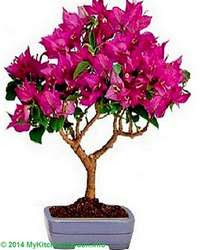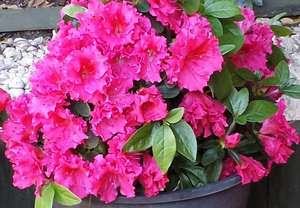There is an increased amount of pollen in the air from Autumn to the end of Summer. These air borne pollen are tiny and light weight and are easily inhaled, reacting with our eyes, nose and sinus. They cause problems like sneezing and watery and itchy eyes in people affected by asthma, Hay fever and allergies.
 |
| Bonsai Bougainvillea |
 |
| Succulent |
 |
| Add caption |
 |
| Azalea Blooms |
 |
| Mr Lincoln Rose |
 |
| Mint |
 |
| Begonia |
Most of the plants with trouble making pollen are found in our gardens (worst plants for allergies). However, gardening without wheezing & sneezing is possible and achievable. You can plan your garden by choosing asthma and allergy friendly plants to improve your health.
Plants pollinated via wind release millions of tiny pollen grains in air that are easily inhaled. Such plants should not be used as house plants and in school area where children with allergy may be affected. On the other hand insect pollinating plants do not distribute their pollen in air.
There are several low-allergy options for your garden. Following is a list of allergy and asthma friendly plants which are either insect pollinated or sterile and propagated by cuttings or grafting.
Allergy Friendly Flowering Plants
AlyssumAnemone
Banksia
Bougainvillea (Bougainvillea plant| Bonsai Bougainvillea Care | Bougainvillea Propagation from cuttings)
Azalea (Azalea propagation)
Begonia
Clematis
Coleus (Coleus plant care, How to grow coleus from cuttings)
Columbine
Cornflower
Crocus
Cup flower
Cyclamen
Daffodil
Dianthus
Dusty miller
Floss Flowers
Foxglove
Fuchsia
Geranium
Gladiolus
Hibiscus
Hosta
Hydrangea
Hyacinth
Impatiens
Iris
Lily
Lobelia
Nasturtium
Nemesia
Jasmine (Chilean Jasmine Star Jasmine, Arabian Jasmine plant, Growing Spanish Jasmine, Night blooming jasmine plant, Jasmine care in winter)
Pansy
Petunia
Peony
Phlox
Poppy
Roses (grow roses from cuttings)
Rosemary
Salvia
Snapdragon
Succulents
Sweet pea vine (growing peas in containers)
Tulip
Verbena Viola
Zinnia
Allergy Friendly Herbs
BasilChives
Coriander
Dill
Fennel
Horseradish
Marjoram
Mint
Oregano
Parsley
Rosemary
Sage
Stevia
Thyme
Allergy Friendly Trees
AppleCherry
Chinese fan palm (female)
Fern pine (female)
Dogwood
English holly (female)
Radford pear
Crepe myrtle
Hardy rubber tree
Magnolia
Pear
Plum
Red maple (female)
Tips For Allergy Friendly Garden
- Avoid plants that pollinate by wind. Choose plants that are pollinated by birds and insects.
- Avoid gardening on very windy days or hot still days and stay inside. Early morning and cloudy days are best for gardening.
- People who are allergic should avoid gardening after light rains in spring to early summer when some pollen grains break up and release large amounts of tiny allergic particles.
- Avoid plants with strong fragrance. Roses, however, are safe. Do not plant jasmine or gardenia next to house entrance and windows.
- Plant only female species in your garden as male plants produce the pollen.
- Choose a slow-growing low pollen producing lawn that does not require frequent mowing. Cut the grasses before they release their pollen. Lawns trap pollen which are released when the lawn is mowed.
- Use inorganic mulches to reduce weeds and mound spores. Organic mulches produce mound and fungal spores.
- Moisten potting mix and animal manures prior to use to avoid spreading mound spores in air.
- Weed the plants often.
- Avoid compost heaps in open.
- Use air filters in you home which can reduce the amount of pollen in air inside. The filters captures large airborne pollen mold spores dust etc.